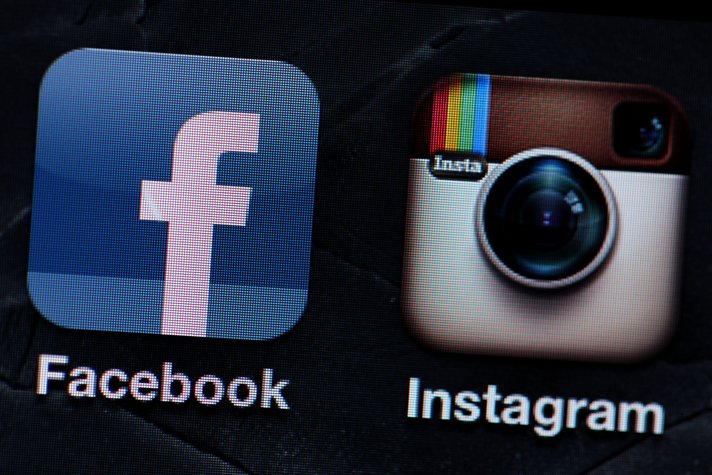RIO DE JANEIRO, BRAZIL – If one can say that there was a winner in the pandemic, no doubt it was the technology sector. In a matter of weeks, the Zoom videoconference service has entered the vocabulary of millions of people worldwide, taking the place of one of the most well-known and oldest brands on the Internet, Skype.
The consensus among analysts is that the pandemic has fast-tracked the digitalization of people’s lives and businesses in years, particularly in the service sector. Those who already had a solid e-commerce operation surfed the wave. Those who were late had to recoup losses.

The climate should be of one of celebration in Silicon Valley. But there are those who see signals of a bad omen: will the pandemic be the beginning of the end of the planet’s largest innovation center’s hegemony?
In an article published in Medium, journalist and editor Steve LeVine points out the relevance of chance and random interactions as one of the most important and least understood drivers for the success of the American technology industry.
“One day, Zuckerberg and his friends were walking around Palo Alto when they saw a familiar face. It was Sean Parker, co-founder of Napster, the music-sharing service,” writes LeVine.
“The following week, Parker moved into the house where Zuckerberg was designing Facebook. By the end of that summer, he would open the network that led to the first major investment in the company – US$500,000 (R$2.5 billion) from Peter Thiel.”
The history of Facebook, which today is worth US$750 billion in the stock market, is similar to that of so many others in our digital daily lives: young entrepreneurs who move around in the same environments, attend the same parties, meet the same people.
People who can make a difference in the future of a startup are everywhere. So many concentrated in the same location? Only in Silicon Valley, a corridor of about 80 kilometers between San Francisco, in the north, and San Jose, in the south.
This small piece of land in the United States has the third highest per capita GDP in the world, behind Zurich (Switzerland) and Oslo (Norway), according to the Brookings Institute study center.
LeVine argues that remote work could put an end to the unique conditions that have turned northern California into an admired, studied, and hardly copied region. Google has already announced that its nearly 200,000 employees will be able to continue working from home until mid next year.
Mark Zuckerberg said he expects up to half of his staff to work from home permanently over the next decade. The most aggressive policy came from Twitter: the company announced that all its employees may work from home for good if they so desire.
California’s technological corridor was already one of the most expensive regions in the United States to live in, and the pandemic left homes even more out of mere mortals’ reach.
The average price of a home in San Mateo County, which encompasses part of Silicon Valley, has increased 19 percent in the past 12 months and has reached US$1.73 million.
With these figures, it is more likely that a home owner has already sold his startup, not that he has plans to start a new business from his garage.
LeVine acknowledges that not all “serendipities” are dramatic to the point of giving rise to billion-dollar companies. But cooperation and casual encounters are part of the ethos of technology companies and are critical not only to the initial spark of a start-up but to its long-term success.
Apple’s headquarters, a US$5 billion circular building inaugurated three years ago, was designed by Steve Jobs to promote casual interactions and connections between its 12,000 employees.
The company’s founder “believed strongly in the strength of accidental encounters and knew that creativity is not a solitary endeavor,” in the words of Ed Catmull, one of the founders of Pixar Studio.
But Tim Cook, the company’s CEO, said last month that some of the changes brought about by the Covid-19 pandemic will be long-lasting. “I can’t believe we’re going back to the way it was because we found out that some things work very well virtually,” said Cook.
While most companies try to portray distance working as a potential gain in quality of life for employees – although the decision was imposed by circumstances – Reed Hastings makes a pessimistic assessment.
“I don’t see anything positive in working from home,” says Hastings, founder and co-CEO of Netflix, one of the companies that grew the most during the current crisis and that was the lifeline for many people during the period of compulsory isolation.
Jokingly, he told the Wall Street Journal that his employees will return to the office 12 hours after the vaccine is approved. “Probably six months after the vaccine”, he answered, speaking seriously.
Reheated obituary
To paraphrase Mark Twain’s famous tirade, the death of Silicon Valley has been greatly exagerated, in many prior instances. The bursting of the first Internet bubble 20 years ago was one of them.

The rise of Chinese companies, particularly in critical sectors such as artificial intelligence, was another.
In both cases, the most pessimistic projections were not confirmed. But now, beyond the potential geographical dispersion of talent – which is only possible through the tools developed by the technology companies themselves, it must be said – there is another, potentially even more serious threat: regulation.
One of the pillars of American startups is its attempt to skirt restrictive laws and regulations. Companies like Uber have grown despite ignoring labor protections. Airbnb has turned the hospitality business upside down despite not following the same rules imposed on hotels.
Pioneers lead the way, and legislators will struggle to keep up with them.
However, this permissive environment may have its days numbered. While they inspire dazzlement with their audacity and logic-defying growth, the technology giants are also viewed with growing distrust.
A GQR research shows that 85 percent of Americans think that large technology companies are too powerful. This means monopolistic practices, privacy violations, lack of control – deliberate or otherwise – over the content they help spread, and excessive power over startups.
Companies that have benefited from the fertile environment for ideas and innovation have become monoliths who now try to crush the smaller ones who challenge their dominance – or else buy them.
There’s no better example than Instagram, an innovative social network that has created a simple and fun way to keep in touch with friends. Threatened, Facebook acquired the service in 2012, for US$1 billion.
Under the new administration, what was essentially a shared photo album has today become a Frankenstein to which copies of its competitors’ successes are added.
To stick to the two most recent cases: the Stories function is an imitation of Snapchat; Reels is a brazen plagiarism of TikTok.
A report published on Tuesday by the US Subcommittee on Antitrust stated that Facebook exerts monopoly power on social networks, “by acquiring, copying or killing its competitors”.
One of the solutions proposed in the document is the separation of businesses. Another option is that any acquisition by giants (Amazon, Apple, Facebook and Alphabet, the holding company that controls Google) be considered anti-competitive – an inversion of the burden of proof to show that the business will not be detrimental to consumers.
Critics of what has been conventionally termed Big Tech claim that if there is no intervention of some kind – a real prospect if Democrat Joe Biden is elected president – the incentive to innovate may languish. For the spirit of rebellion that pervades Silicon Valley, it would be a much harder blow than any pandemic.
Technology for what?
Another criticism increasingly common to companies that leave California and conquer the world concerns the kind of problem they propose to solve.
“Silicon Valley is known for its “tech bros” – the warriors who wear hoodies and are accused of creating products and services that will provide for things their mothers no longer do for them,” writes investor Alexa Lazarow in Out-Innovate: How Global Entrepreneurs -from Delhi to Detroit- Are Rewriting the Rules of Silicon Valley.
“It shouldn’t come as a surprise. Entrepreneurs create companies based on their experience. And the experience of a 21-year-old is short, local and short-sighted.”
Lazarow says that less than 20 percent of startups in California are founded by women. Despite the large presence of Asians, the technology sector still employs very few blacks. It is estimated that only one percent of companies that receive venture capital have black founders. In a world increasingly aware of the significance of a diverse culture, the homogeneity of Silicon Valley is being challenged like never before.
Other poles within the United States itself are beginning to draw attention. None of them have the dimension, the influence or the mystique that surrounds Northern California. But the pandemic may also hasten this change.
One of the poles that has been growing the most is in located the state of Utah and has about 6,500 startups, four of them unicorns. Two of them – Pluralsight and Domo – are already on the stock market, and a third, Qualtrics, was bought by the German giant SAP for US$8 billion in August.
The Crunchbase website, which follows investments in startups, ranks Utah sixth in the list that measures the venture capital invested per inhabitant. Utah is a state best known for its natural beauty and for being the headquarters of the Church of Jesus Christ of Latter-day Saints (also known as the Mormon Church).
Perhaps in the future its fame may be owed to Silicon Slopes, as its technological cluster has become known (the name is a reference to the state’s ski resorts).
Source: InfoMoney

